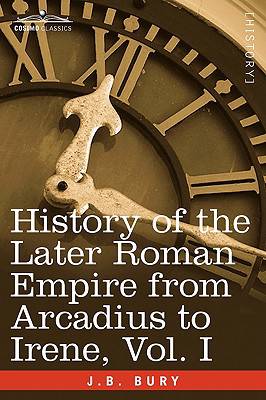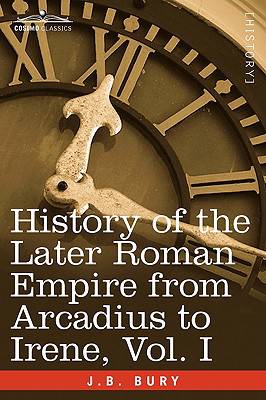
- Retrait gratuit dans votre magasin Club
- 7.000.000 titres dans notre catalogue
- Payer en toute sécurité
- Toujours un magasin près de chez vous
- Retrait gratuit dans votre magasin Club
- 7.000.0000 titres dans notre catalogue
- Payer en toute sécurité
- Toujours un magasin près de chez vous
36,95 €
+ 73 points
Description
In the fourth and fifth centuries A.D. a great change came over the face of Europe; the political order of things was broken up. This movement ushered in the Middle Ages, and it presents a noteworthy parallel to that other great European movement which ushered out the Middle Ages, the movement of the fifteenth and sixteenth centuries by which the spiritual order of things was broken up. The atmosphere of the age in which the Empire of Rome was dismembered was the christian religion; the atmosphere of the age in which the Church of Rome was ruptured was the Renaissance of culture. -from Chapter I: "Christianity and Paganism" This classic two-volume history of the Later Roman Empire, first published in 1889, remains one of the most readable works on the era, and is highly recommended for students of Roman culture. Volume I explores: the influence of Christianity on society elements of disintegration in the Roman Empire the administration of the empire Constantinople the Germans in the east John Chrysostom invasions of the Huns life and manners in the fifth century the Ostrogoths Greek literature of the fifth century the age of Justinian the Persian wars the reconquest of Africa and Italy the great plague and much, much more. British historian JOHN BAGNELL BURY (1861-1927) was professor of modern history at Cambridge. His writings, known for a readability combined with a scholarly depth, include History of Greece (1900) and Idea of Progress (1920).
Spécifications
Parties prenantes
- Auteur(s) :
- Editeur:
Contenu
- Nombre de pages :
- 516
- Langue:
- Anglais
Caractéristiques
- EAN:
- 9781605204048
- Date de parution :
- 01-12-08
- Format:
- Livre broché
- Format numérique:
- Trade paperback (VS)
- Dimensions :
- 152 mm x 229 mm
- Poids :
- 748 g

Les avis
Nous publions uniquement les avis qui respectent les conditions requises. Consultez nos conditions pour les avis.






